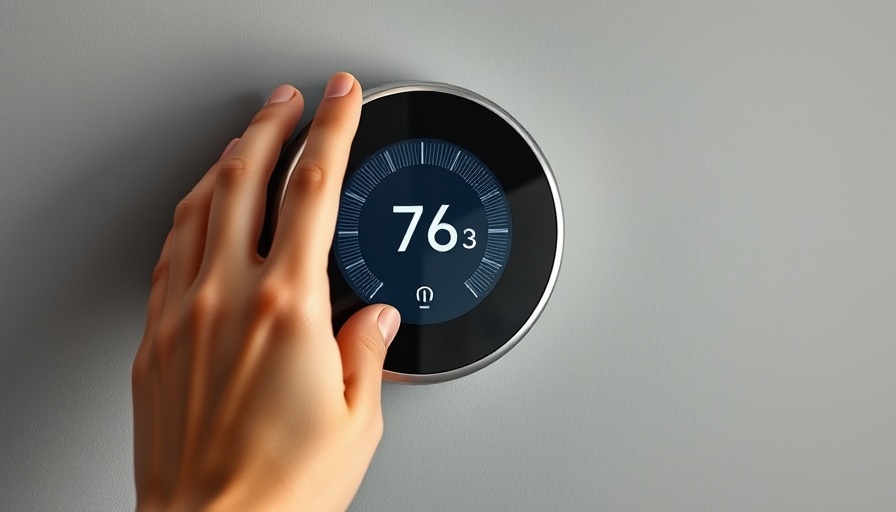
Is Turning Off Your AC Really the Best Option?
As the warmer months roll in, many homeowners ponder whether to turn off their air conditioning units when leaving home. The thought is simple: save electricity by switching off the AC while you're out. However, HVAC experts remind us that this decision may not be as straightforward as it sounds.
Keeping Your Home Comfortable
Turning off your AC during the day could lead to your home heating up significantly, especially in the peak afternoon sun. This sudden temperature shift can put extra strain on your AC unit when you return and turn it back on. Instead, consider setting your thermostat to a higher temperature while you're away. This can maintain a reasonable temperature and prevent your AC from working overtime.
Energy Efficiency Comes with Smart Controls
Another important consideration is the advent of smart thermostats. These devices allow you to program your AC to adjust temperatures depending on your schedule. For instance, you can set it to cool down your home just before you arrive, ensuring comfort without wasting energy. Studies show that using smart technology can lead to a reduction in energy costs by around 10-15%.
The Cost of Overworking Your AC
Frequent off-and-on cycles can wear out your air conditioning unit faster, leading to increased repair costs. An consistently running system uses more power, which might seem wasteful, but a unit that struggles to cool a hot house is even more inefficient. Keeping it on a stable setting can enhance its longevity.
Your Comfort is Key
For many, being comfortable in their home is priceless. If your house gets too warm, it can affect everything from your mood to your indoor air quality. Mold growth can become an issue in warmer, humid conditions, which can be exacerbated by turning your AC off completely.
Bottom Line: What Should You Do?
In conclusion, rather than turning off your air conditioning entirely, adjust the thermostat and invest in technology that keeps your home comfortable while saving energy. Keeping your home temperature stable not only prolongs the life of your AC system but also ensures that you return to a cool, inviting space. Homeowners should particularly embrace these smart technologies, as they allow for flexibility and energy savings.
For more tips on maintaining your home's systems, including HVAC best practices, explore the resources available in your local home improvement stores or online for further insights.
 Add Row
Add Row  Add
Add 




Write A Comment